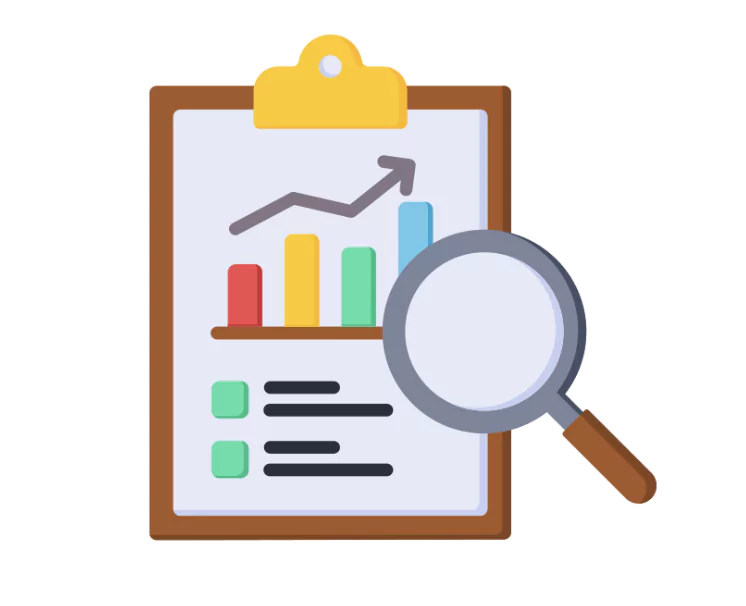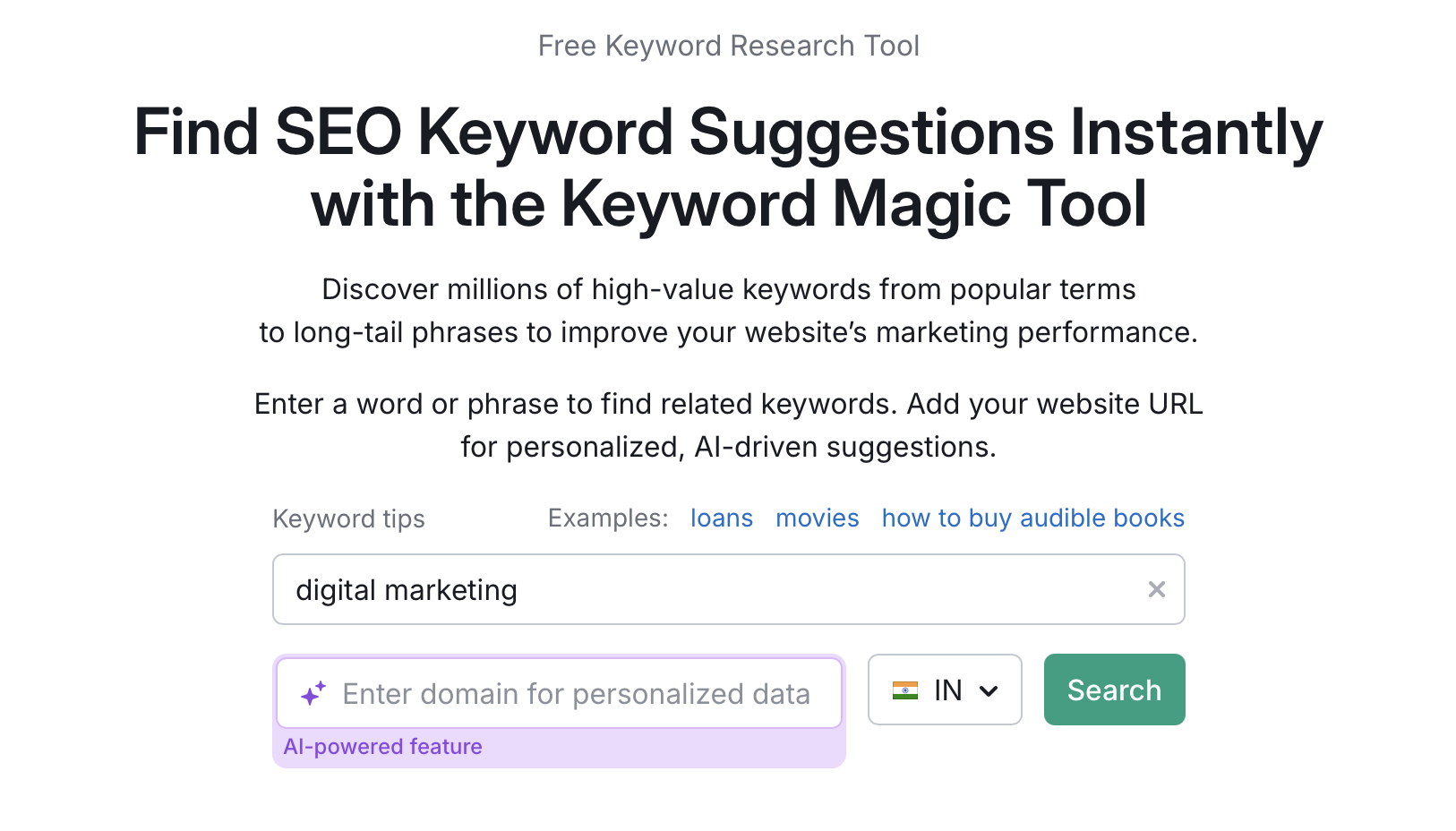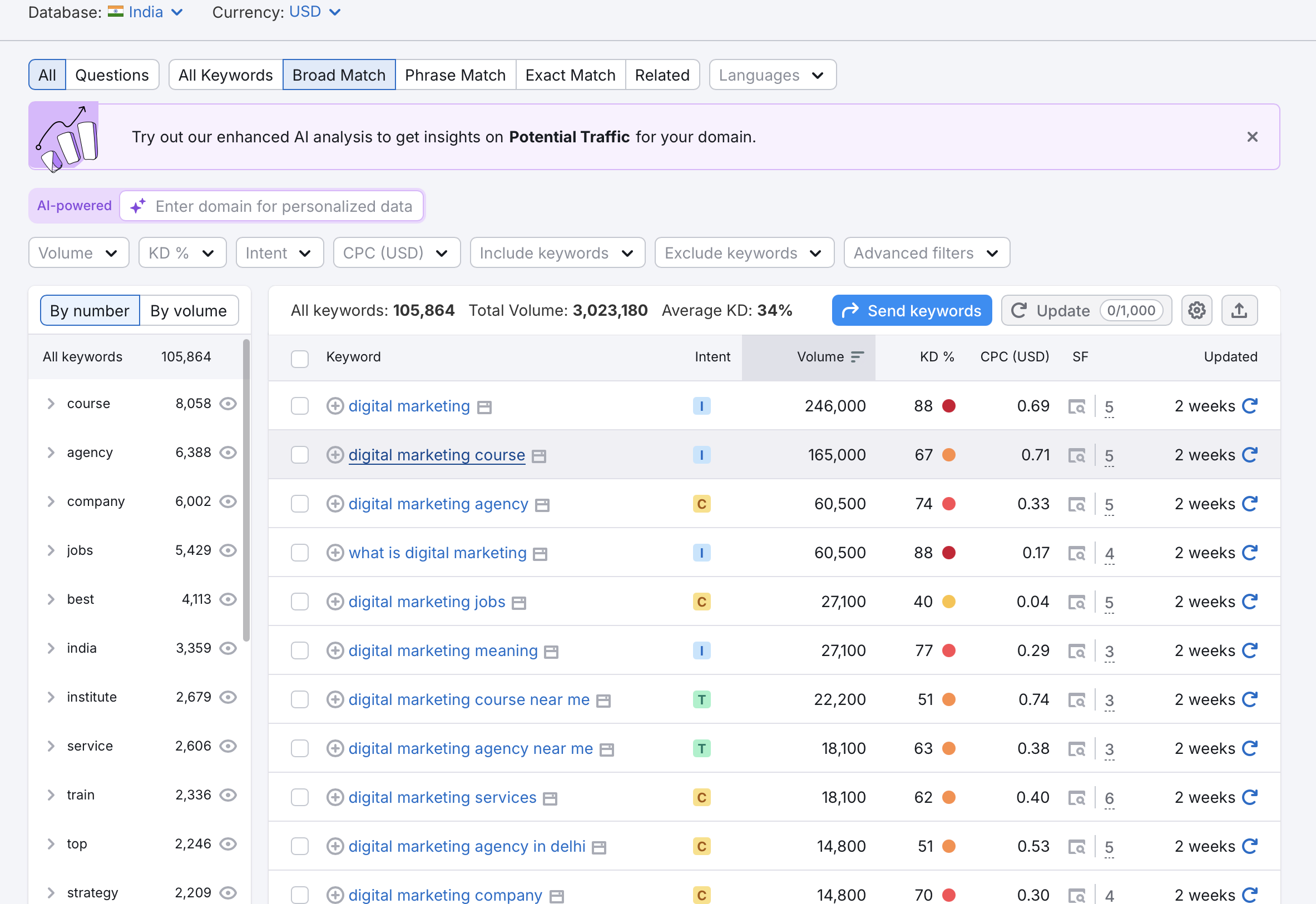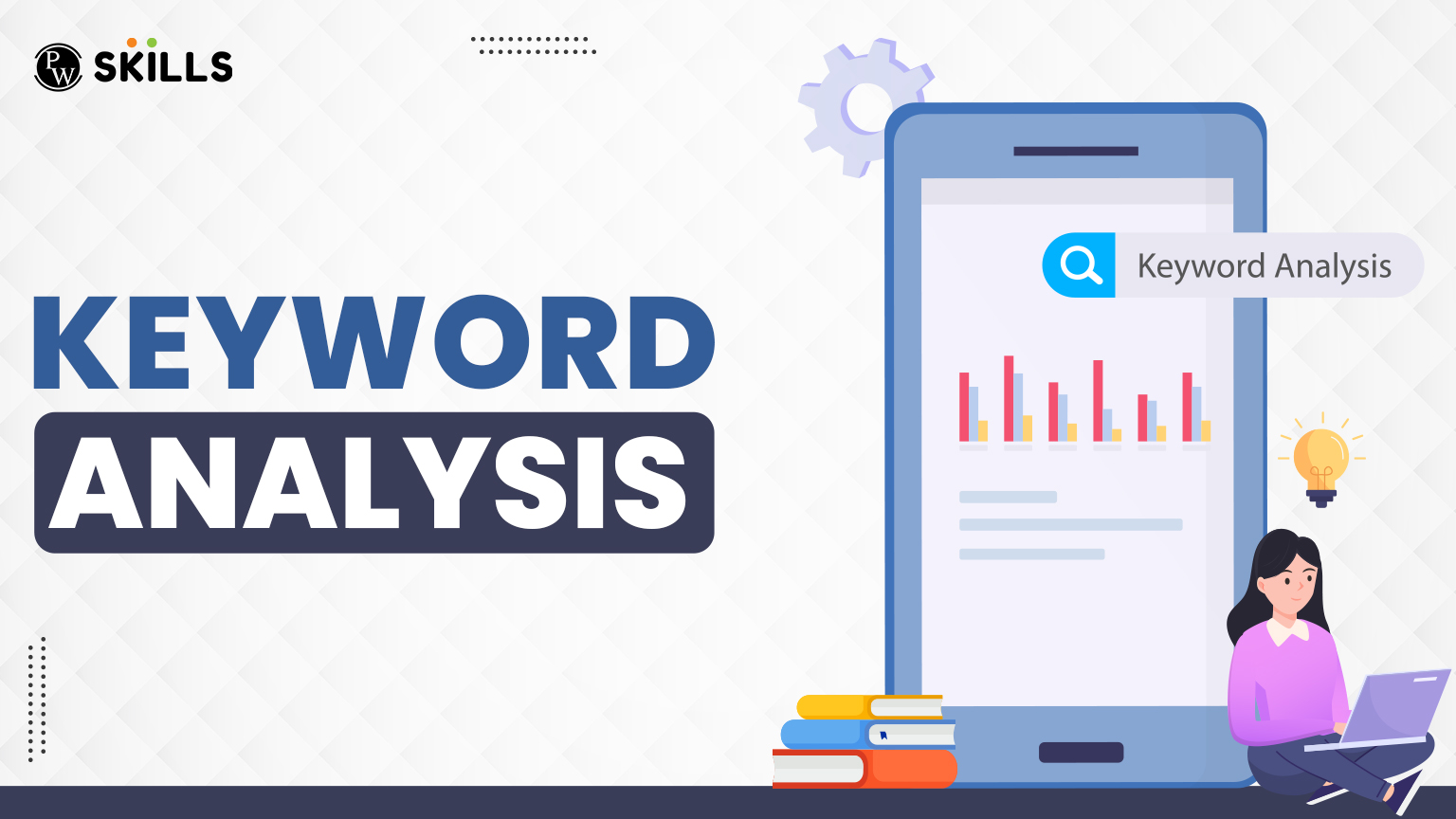Keyword analysis is about finding the right set of keywords from millions of phrases available on the internet. In keyword analysis, professionals filter out the keywords which are actually useful for their SEO campaign. The analysis of keywords takes place on different levels, optimizing content or webpage for target groups, trends, and content to generate organic leads and traffic on Google search result pages.
You can perform keyword analysis through the majority of platforms available online. Here, we will learn how to perform keyword analysis and ensure a proper, effective SEO campaign.
What Is Keyword Analysis?
Keyword Analysis is the process of prioritizing the collection of popular search queries people are making on search engines to get more visibility with ranking and traffic on search engine result pages (SERPs).

Many online tools are available to help SEO professionals in keyword analysis. SEMrush, Google Keyword Planner, Ahrefs, and Ubersuggest are some popular SEO tools that can help implement keyword analysis. The main ingredients for your keyword analysis are mentioned below.
Short Summary For Keyword Analysis
- You have to search for high-volume keywords matching the search intent of users on search engines.
- Ensure balance between high search volume and competitive keywords.
- Short tail keywords are highly competitive with large search volume, but are less specific and demand strong backlink structure support and domain authority to rank on SERPs
- Make sure you satisfy that the content delivery aligns with the search intent of users online
- Leverage smart AI tools and frameworks available online to get better insights and listings.
Why Is Keyword Analysis Important?

Keyword analysis is the first stage of a successful SEO strategy to get organic traffic and conversions on a site.
- Keyword analysis focuses on researching, evaluating, and collecting keywords with significant search volume history on search engines.
- The main reason for keyword analysis is to pick keywords that match the search intent, web page niche, and have the potential to rank higher in the SERPs.
- With the proper keyword analysis, you will get familiar with the user intent and ensure delivery of valuable content on the webpage.
- Keyword analysis helps you identify the valuable keywords with the right balance of both search volume and difficulty i,e. Competition from other webpages.
- You can prepare the content planning with keyword analysis, setting up the right set of keywords in blog posts, product descriptions, landing pages, and more.
- With effective keyword analysis, you get an edge over competitors by covering major gaps and delivering valuable content for trending topics.
How To Do Keyword Analysis For SEO On SEMrush?
There are many ways you can do keyword analysis for your site and provide it to your SEO campaign. Let us check step by step method to ensure proper keyword analysis.
- Step 1: Go to the “SEMrush dashboard” and search for “Keyword magic tool” in the left sidebar.

- Step 2: Now search for a relevant term for which you want to optimize your content delivery. Suppose it is “digital marketing.

- Step 3: You can choose between broad match, exact match, phrase match, and related.
- Step 4: SEMrush gives you the flexibility to choose languages, AI-powered filters, and make an analysis on other major parameters.
- Step 5: You can choose filters based on Search volume, KD%, Intent, CPC, and other advanced filters.
How to Analyze Search Intent In Keyword Analysis?
It is important to analyze search intent to get familiar with what type of content users are looking for. The four major search intent keywords help you understand how far ahead a visitor is in making a purchase.
1. Informational Intent Keywords
These types of keywords are generally made by users who are looking for some answers to a problem; they are not yet ready to buy, but they need information. You can still target them and become a trusted source of information.
For example, “What is keyword analysis?” is an informational intent keyword where the user is looking for some information available on the internet about keyword analysis.
2. Navigational Intent Keywords
In this type of keyword intent, users are looking for a particular brand or website they want to visit. Google is a medium for them to reach the page where they can find valuable information or make a purchase.
For example, “Nike official site”, “PW Skills Official Site” are some of the navigational intents where users are looking for specific platforms like PW Skills and Nike.
Read More: What Is Keyword Intent? An Overview & How To Identify It
3. Commercial Intent Keywords
This type of keyword is more aligned to making a purchase, as they are in the research stage, evaluating various available products or services. You can provide content like case studies, listicles, reviews, and comparison articles to rank on these types of commercial intent keywords.
For example, keywords like “Ahrefs vs SEMrush” are comparisons between two popular SEO tools. Here, the user is about to make a purchase while looking for the perks and features to choose one of these tools.
4. Transactional Intent
These keywords generally reflect the stage where the user is about to take action and make a purchase, sign up, fill a form, or download a resource from the site.
For example, a keyword like “buy iPhone 16 online” is a type of keyword that reflects the intent of making a transaction. You need to provide users with product pages, landing pages, and call to actions, as the conversion chances are high here.
Can ChatGPT Help In Keyword Analysis?
ChatGPT is a smart LLM model that can fetch information from available information on search engine pages to give you the information you seek. You can smartly use ChatGPT to conduct keyword analysis, and that too for Free.
- ChatGPT can quickly generate a list of seed keywords when you explain to it about your niche, target, and audience. You can also get long tail keyword variations from this tool.
- You can provide ChatGPT with a list of related keywords and tell it to cluster them into topics based on your requirement i,e. Informational, commercial, transactional, navigational.
- You can verify the search intent of a keyword with ChatGPT to match your content with the type of keyword.
- However, ChatGPT still cannot show you the live SERP features.
- If you provide ChatGPT with metrics such as KD, CPC, Search volume, and other information, it can sort out keywords based on a priority matrix.
What Are Other Metrics To Consider In Keyword Analysis?
After you know the intent, you have to cover your content delivery. It is time to ensure you are ready with other metrics important for content optimization and ranking.
1. Keyword Difficulty
Keyword Difficulty is an important metric on a platform that depicts how hard it is to rank for a keyword based on the competitor websites.
- Many tools like SEMrush, Ahrefs, and more calculate KD by considering various metrics, like domain authority, backlink profiles, and more.
- The lower the KD%, the easier the chance of ranking for the given keyword.
- You have to find a balance between keyword difficulty and search volume to ensure your content ranks.
2. Cost Per Click (CPC)
This metric in the keyword analysis tells how much you need to pay as an advertiser for an ad campaign in paid ads. The higher the value of CPC, the better the commercial value of a keyword.
- CPC metrics consider money-making keywords.
- They generally have high commercial intent and chances of conversion.
3. Click Through Rate (CTR)
CTR tells how likely a user is to click on your content, taking various possible factors like the title display, featured snippets, and more. It is calculated by taking clicks and impressions into consideration.
- A higher CTR rate tells that users are more likely to click on your page for answers rather than skipping.
- Higher CTR also depicts that users trust and prefer content on your website.
- Lower CTR represents a chance of working on the quality of content on the webpage.
4. SERP Features
Many Google Search Result pages provide valuable information, like Featured snippets, People Also Ask, Related searches, and more. You can analyze these popular queries on the search engine to optimize your keyword SEO strategy accordingly.
- Monitor whether the top positions are already occupied by big brands or businesses.
- You can take many long tail keyword suggestions from the People Also Ask section, the Google autocomplete section, related searches, and more.
Keyword Analysis 2025 FAQs
Q1. What is keyword analysis?
Ans: Keyword analysis is a method that can be used to evaluate popular search queries with good search volume and balanced competition to rank on Google search result pages.
Q2. How can we conduct keyword analysis?
Ans: Keyword analysis can be conducted easily by examining certain metrics of a keyword i,e. Search volume, keyword difficulty, potential of conversion, and intent behind the keyword. It includes researching, collecting, and processing keywords available in search queries.
Q3. What metrics are considered in keyword analysis?
Ans: Some of the key metrics in keyword analysis include monthly search volume, keyword difficulty, keyword intent, CPC (Cost per Click), and more.
Q4. What are some of the free keyword analysis tools?
Ans: Some free keyword analysis tools are Google Keyword Planner, SEMrush, Ahrefs, Ubersuggest, Google Search Console, and more.

